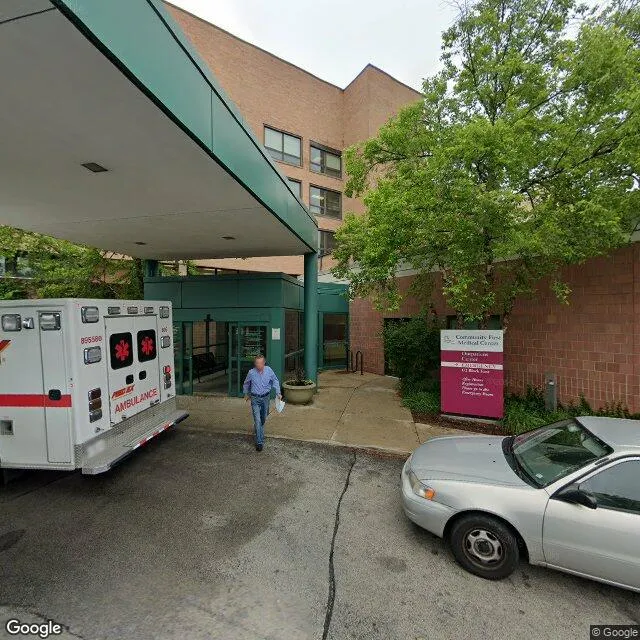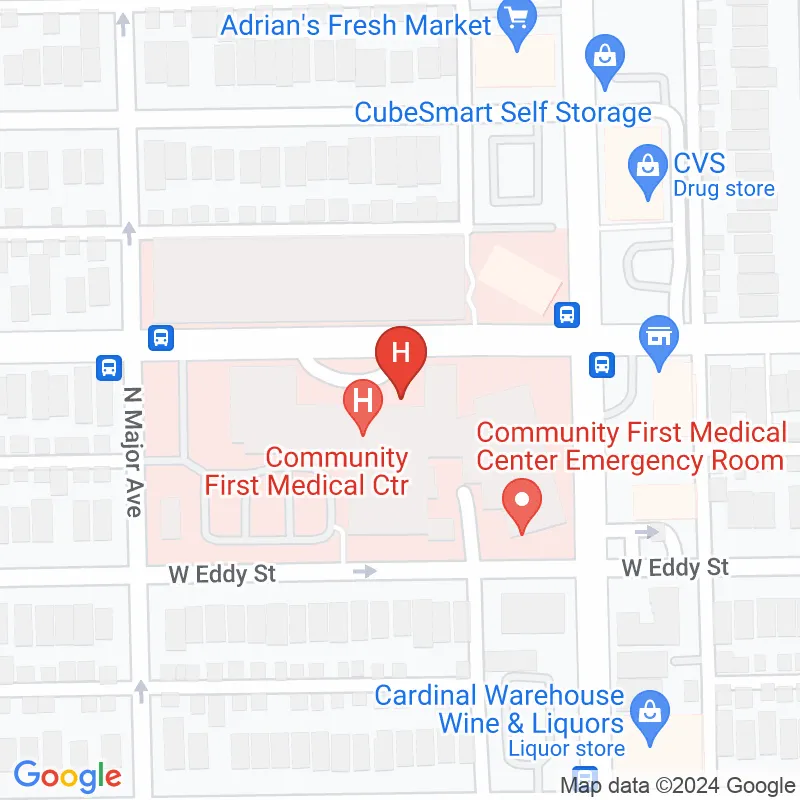Community First Medical Center - ICU Unit, Chicago Portage Park, IL


Monday: Open 24 hours
Tuesday: Open 24 hours
Wednesday: Open 24 hours
Thursday: Open 24 hours
Friday: Open 24 hours
Saturday: Open 24 hours
Sunday: Open 24 hours

Community First Medical Center is a non-profit healthcare provider in Chicago, offering extensive services, including emergency care, cardiology, orthopedics, and outpatient rehabilitation. With over 30 years of experience, it is committed to quality care, patient satisfaction, and community support.
Community First Medical Center is a leading healthcare provider in Chicago, Illinois, dedicated to delivering comprehensive and compassionate medical care. The facility offers a wide range of services, including emergency care, diagnostic imaging, surgical services, and outpatient rehabilitation. Key specialties include cardiology, orthopedics, women’s health, pediatrics, and internal medicine. Established as a non-profit organization, Community First Medical Center has been serving the community for over three decades, earning recognition for its commitment to quality care and patient satisfaction.With a reputation bolstered by multiple accreditations, the center emphasizes compassionate treatment and cutting-edge medical technologies. The facility is conveniently located within the bustling Chicago metropolitan area, providing easy access to essential services. Recent renovations have enhanced patient comfort and operational efficiency, while expanding community outreach programs demonstrates a firm commitment to public health. Community First Medical Center stands out not only for its medical expertise but also for its deep-rooted history of supporting local residents in their healthcare journeys.
Do you manage this facility?
Claim your profile now to suggest edits to this page or post a shift.
Download the Nursa App

Until then, you can continue with the app to signup or login.
Address


Nursa's Favorites
Nursa reviews are only left by clinicians who have completed a shift at a specific healthcare facility using the Nursa app. Each review goes through a strict verification process to ensure authenticity and reliability. Make informed decisions with confidence, knowing that Nursa reviews are directly from other clinicians with real firsthand experience who have used the app to work at the facility. Verified. Reliable. Transparent.
Interested in this facility?

Pick Up a Job Today
Find per diem PRN job opportunities in your area. High paying CNA, LPN and RN and many more licences are available now.
Join NursaPost Your Jobs Today
Facilities who use Nursa fill 3 times as many open per diem shifts, on average, compared to trying to fill the shifts themselves.
Post Jobs











.svg)
